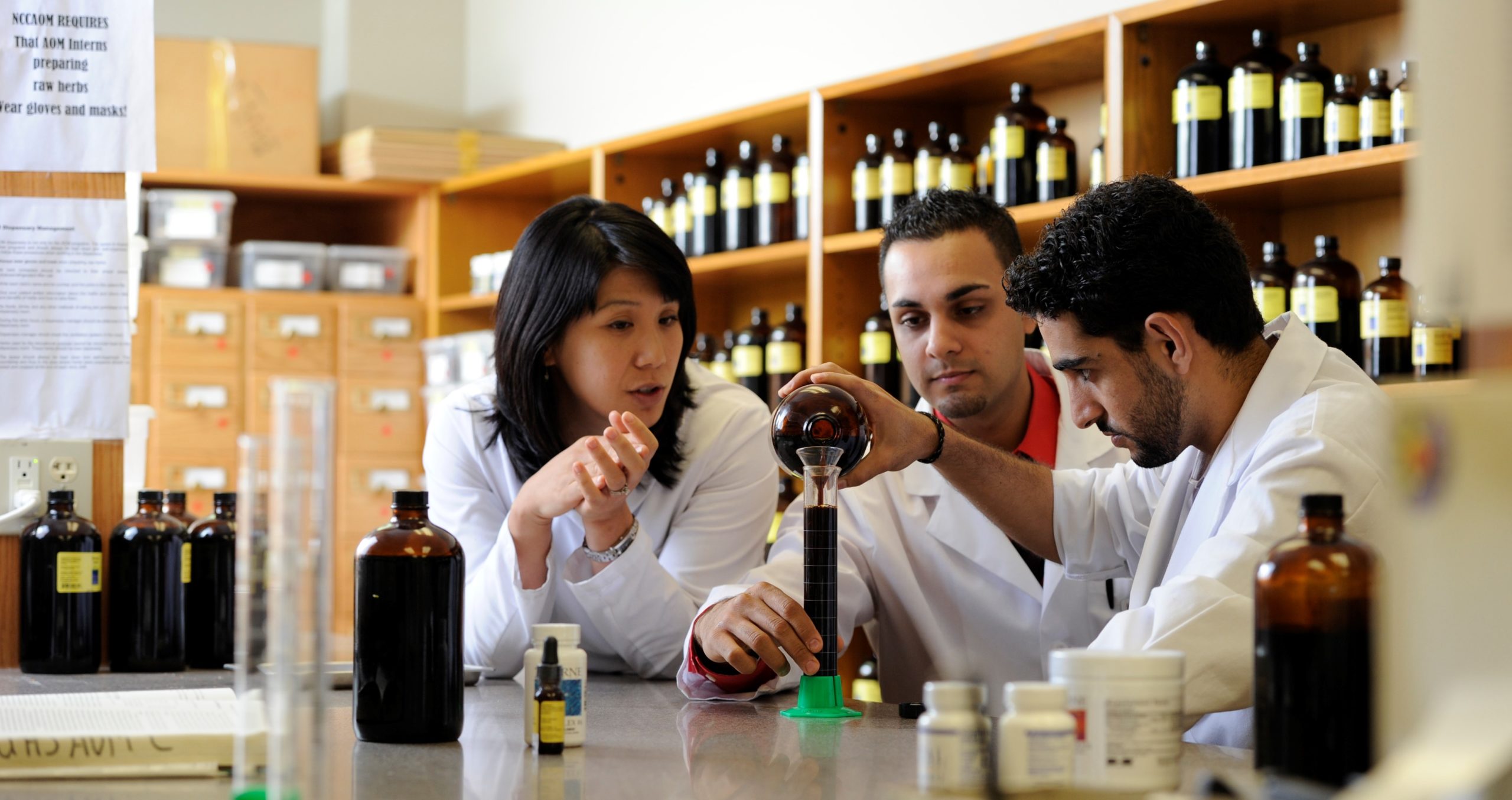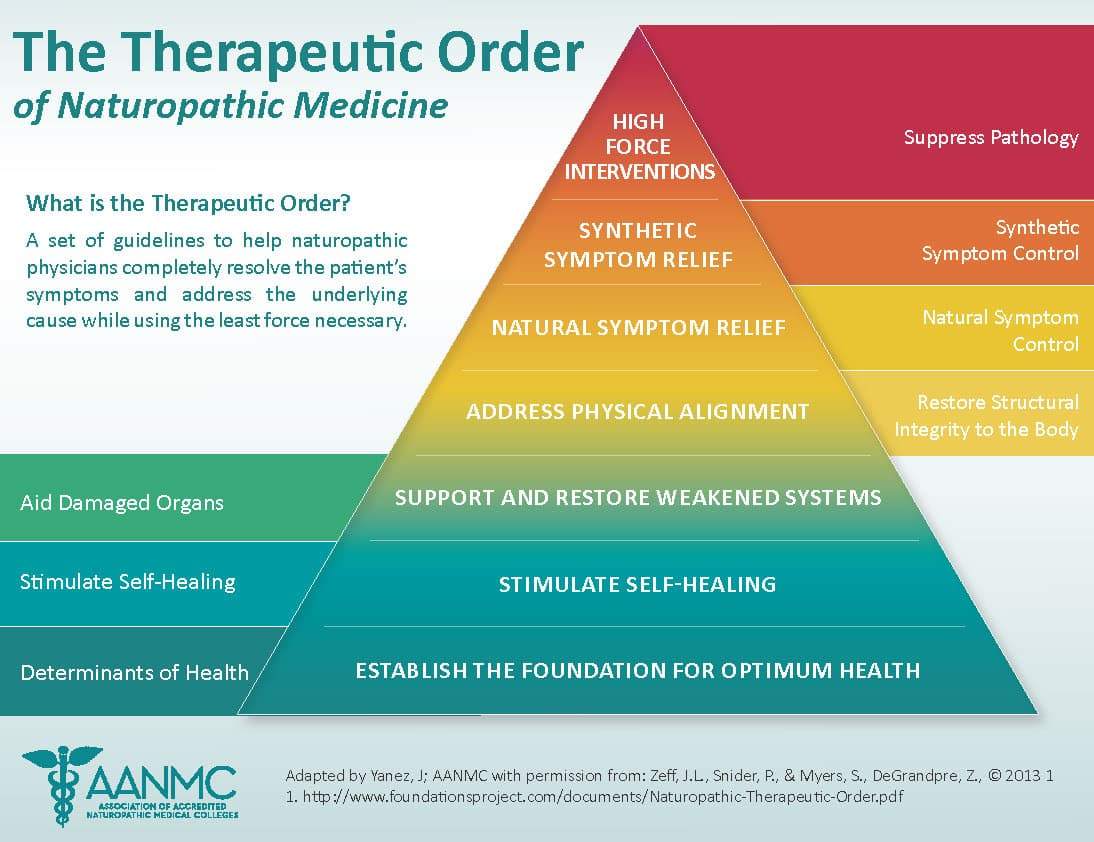The popularity of naturopathic medicine as an effective natural alternative or complement to traditional medical care has grown substantially in the past three decades. Yet the field is not as well-known as other forms of health care, meaning there remain pervasive myths about naturopathic medicine that deter some patients who would otherwise benefit from its healing potential. These myths may also hinder some prospective naturopathic students from learning how to become a naturopathic doctor and the many rewards of this exciting career in complementary and alternative medicine (CAM).
Before you choose a natural medical specialty to pursue, check out these five common myths about naturopathic medicine.
Myth #1: Naturopathic medicine is not based in science.
The foundation of naturopathic medicine, which focuses on preventing and treating the underlying causes of illness through lifestyle changes, has long been supported by research. According to a 2014 National Health Report by the Centers for Disease Control and Prevention, seven of the top ten leading causes of death could have been prevented or delayed, and quality of life could have been improved through lifestyle changes, including healthy diet, physical activity, avoidance of tobacco, and other types of risk reduction.
According to the American Association of Naturopathic Medical Colleges (AANMC), naturopathic doctors go through rigorous four-year science-based medical education at an accredited or candidate school of the Council on Naturopathic Medical Education (the only naturopathic programmatic accreditation agency recognized by the U.S. Secretary of Education). A minimum of two years is spent studying the same biomedical sciences that prepare conventional medical students to be doctors. Naturopathic medical students learn to appraise and weigh the research evidence base as a part of developing patient treatment plans. ND schools are also leaders in developing primary research in natural medicine.

Naturopathic doctors also use botanical medicines, physical medicine and clinical nutrition, which have scientific literature that supports their use. The naturopathic field boasts multiple peer-reviewed scientific journals, including the International Journal of Naturopathic Medicine, Natural Medicine Journal, and Integrative Medicine. Naturopathic doctors consult these journals along with medicine databases such as Cochrane Database and PubMed as sources of proven results rather than theoretical outcomes. Naturopathic students also write research reviews and case studies throughout their education, which commonly cover subjects such as nutrition, botanical medicine and homeopathy.
Myth #2: Naturopathic and conventional medicine are opposed to each other.
A common misconception is that naturopathic practitioners are completely opposed to all conventional medicine, or that they advise their patients to forego traditional health care. In fact, naturopathic practitioners who have attended accredited universities are trained to recognize the necessity of some patients to use pharmaceutical medicines and support situations when naturopathic treatments are best used in conjunction with traditional medical care.
Similarly, many conventional medical doctors support their patients seeking naturopathic care when indicated, particularly to avoid the use of pharmaceuticals.
In fact, naturopathic care is often referred to as “integrative,” because it is meant to be integrated with conventional medicine to maximize the health of the patient. Many naturopathic doctors work alongside medical doctors in their practices and at hospitals, clinics and specialty medical centers.
Myth #3: Naturopathic doctors undergo little training and can get a degree online.
Naturopathic doctors must attend four-year, accredited medical schools. Jurisdictions that regulate naturopathic doctors require completion of an accredited, in-residence, doctoral level program that includes hands-on, supervised, clinical training. Graduates must also obtain a license by passing the Naturopathic Physicians Licensing Examinations (NPLEX), as well as apply for licensure in their state or province. According to AANMC, graduates of online programs are not qualified or eligible to sit for the licensing exam.
The NUHS Doctor of Naturopathic Medicine program, for example, trains students in integrative, naturopathic medicine while preparing them to become primary care doctors. In addition to two years basic and clinical science education, NUHS students spend 100 hours studying pharmaceuticals so they know how to safely use their treatments integratively with conventional medicine.
Myth #4: Naturopathic treatments are just dietary supplements.
Some people think visiting a natural food store and stocking up on supplements is equivalent to seeing a naturopathic doctor. This is far from the truth! Naturopathic doctors learn to treat all aspects of family health and wellness, from pediatric to geriatric, acute colds and flus, to chronic aches and pains. Licensed naturopathic doctors work in primary care settings across North America and are able to manage most outpatient concerns typically seen in primary care practices.
Naturopathic doctors generally spend much more time with their patients than conventional doctors. They then develop comprehensive treatment plans based on the Therapeutic Order, a hierarchy of principles used during the naturopathic treatment process. If necessary, they will make referrals to other doctors to perform surgeries and prescribe medications.
Naturopathic doctors can also perform minor surgeries such as cyst removals and stitching. They are thoroughly trained to find and implement the best treatment options for their patients, allowing them to develop plans that are highly individualized.
Myth #5: Naturopathic doctors are against using drugs/pharmaceuticals.
As mentioned above, NUHS students spend 100 hours studying pharmaceuticals so they know how to safely use their treatments integratively with conventional medicine. They are also well-equipped to prescribe medications depending on where they practice as allowed by state regulations. It is the job of naturopathic doctors to provide for the best interests of their patients. Prescription medications can be part of that care.
{{cta(‘e2bbb13c-0841-4021-80f7-62bf3f520a39’)}}





0 Comments